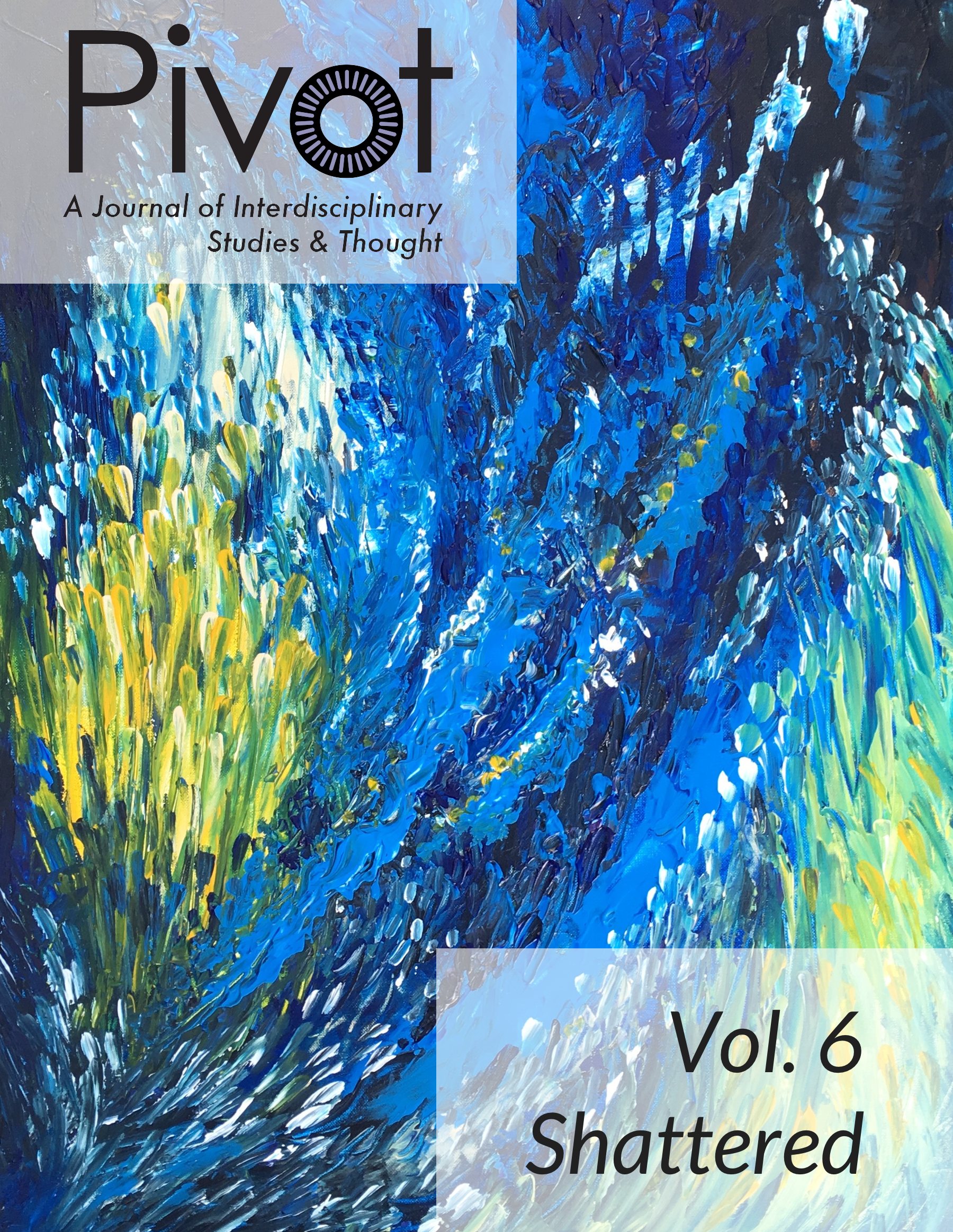The Bondage and Subsequent Agency of Violet in Toni Morrison’s Jazz
DOI:
https://doi.org/10.25071/2369-7326.40269Abstract
In Jazz Toni Morrison’s character, Violet Trace, has difficulty adapting to her life in Harlem (the City) after she moves north from the south. The examination is as follows: the influence of the city on the female community and both entities onto Violet permit her to transform her identity, therefore having three specific stages.themselves.
Violet experiences a transformation in her identity and her environment, particularly the City, aids in her changes. The first stage of Violet’s life occurs in the South, during her journey to Harlem, and subsequently to the death of Dorcas Manfred, her husband’s lover. Violet is influenced by Joe, True Belle, who is her grandmother, and the City during this period. Here, Violet’s identity gives way to Joe’s projection of masculinity, to the desires of True Belle, who repeatedly relives her past caring for Golden Gray, and to the accelerated pace of the City. In her second life, the next stage of identity transformation, Violet meets Alice Manfred, Dorcas’s aunt, who subsequently aids Violet in finding and releasing her pain and reforming her identity. Violet’s third life occurs under the influence of Felice, Dorcas’s friend. Once the duo meets, Violet is able to release Dorcas and to pass on her knowledge to Felice regarding stagnation. It is these women, Alice and Dorcas, who become Violet’s community and who aid Violet’s transformation of her identity.
References
Alexandru, Maria-Sabina Draga. “Love as Reclamation in Toni Morrison’s African American Rhetoric.” European Journal of American Culture, vol. 27, no. 3, 2008, pp. 191–205. DOI: https://doi.org/10.1386/ejac.27.3.191_1
Barnes, Deborah H. “Movin’ on Up: The Madness of Migration in Toni Morrison’s Jazz.” Toni Morrison’s Fiction: Contemporary Criticism, edited by David L. Middleton, Garland, 1997, pp. 283–95.
Christian, Barbara. Black Feminist Criticism: Perspectives on Black Women Writers. Teachers College, 1997.
Christian, Barbara. “But What Do We Think We’re Doing Anyway: The State of Black Feminist Criticism(s), or My Version of a Little Bit of History.” Black Feminist Cultural Criticism, edited by Jacqueline Bobo, Blackwell, 2001, 38–52.
Christian, Barbara. New Black Feminist Criticism, 1985–2000. Edited by Gloria Bowles, M. Giulia Fabi, and Arlene R. Keizer, U of Illinois P, 2007.
Grewal, Gurleen. Circles of Sorrow, Lines of Struggle: The Novels of Toni Morrison. Louisiana State UP, 1998.
hooks, bell. Black Looks: Race and Representation. South End, 1992.
Jewett, Chad. “The Modality of Toni Morrison’s Jazz.” African American Review, vol. 48, no. 4, 2015, pp. 445–56. DOI: https://doi.org/10.1353/afa.2015.0052
Lorde, Audre. “The Transformation of Silence into Language and Action.” Sister Outsider: Essays and Speeches by Audre Lorde. 1984. Crossing, 2007, pp. 40–44.
Mori, Aoi. “Embracing Jazz: Healing of Armed Women and Motherless Children in Toni Morrison’s Jazz.” CLA Journal, vol. 42, no. 3, 1999, pp. 320–30.
Morrison, Toni. Foreword. Jazz, by Toni Morrison, Vintage, 2004, pp. xv–xix.
Morrison, Toni. “An Interview with Toni Morrison.” Interview with Nellie McKay, Contemporary Literature, vol. 24, no. 4, 1983, 413–29. DOI: https://doi.org/10.2307/1208128
Morrison, Toni. Jazz. 1992. Vintage, 2004.
Morrison, Toni. “A Knowing So Deep.” What Moves at the Margin: Selected Nonfiction, edited by Carolyn C. Denard, UP of Mississippi, 2008, 31–33.
Morrison, Toni. “Nobel Laureate Toni Morrison Speaks about Her Novel Jazz.” Interview with Angels Carabi, Toni Morrison: Conversations, edited by Carolyn C. Denard, UP of Mississippi, 2008, pp. 91–97.
Morrison, Toni. “The Seams Can’t Show: An Interview with Toni Morrison.” Interview with Jane Bakerman, Black American Literature Forum, vol. 12, no. 2, 1978, pp. 56– 60. DOI: https://doi.org/10.2307/3041597
Morrison, Toni. “Toni Morrison: The Art of Fiction.” Interview with Elissa Schappell, Toni Morrison: Conversations, edited by Carloyn C. Denard, UP of Mississippi, 2008, pp. 62–90.
Paquet-Deyris, Anne-Marie. “Toni Morrison’s Jazz and the City.” African American Review, vol. 35, no. 2, 2001, 219–31. DOI: https://doi.org/10.2307/2903254
Pattison, Dale. “Building Intimacy: The Erotic Architectures of Toni Morrison’s Jazz.” Critique: Studies in Contemporary Fiction, vol. 58, no. 2, 2017, 129–45.
Schreiber, Evelyn Jaffe. Race, Trauma, and Home in the Novels of Toni Morrison. Louisiana State UP, 2010.
Vickroy, Laurie. Trauma and Survival in Contemporary Fiction. U of Virginia P, 2002.
Wieland, Lisa Cade. “Family.” Toni Morrison Encyclopedia, edited by Elizabeth Ann Beaulieu, Greenwood, 2003, 114–18.

